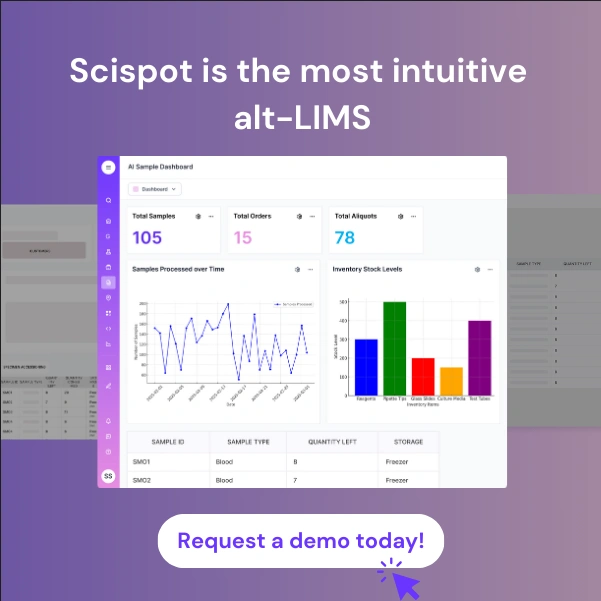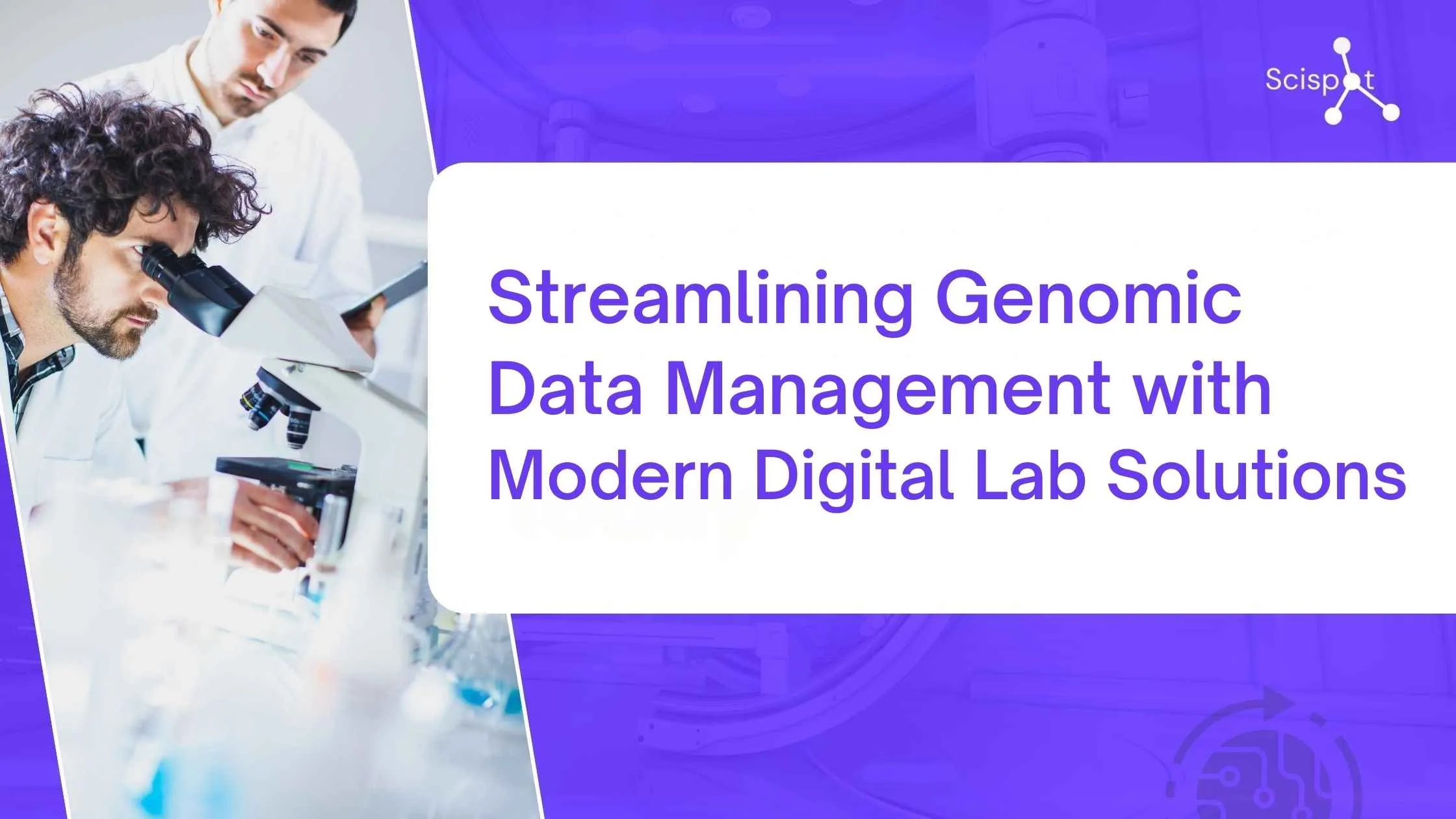The life sciences industry faces mounting pressure to modernize outdated laboratory processes. Biotech companies and research institutions worldwide are discovering that manual, paper-based systems create significant bottlenecks in genomic data management and experimental workflows. This shift toward digital lab transformation isn't just about keeping up with technology—it's about accelerating scientific breakthroughs and maintaining competitive advantage in today's fast-paced research environment.

The Hidden Costs of Manual Laboratory Operations
Research laboratories continue to struggle with handwritten notebooks scattered across different projects, making data retrieval a time-intensive process that slows down critical research timelines. When scientists spend hours searching through physical records instead of analyzing results, lab productivity suffers dramatically.
The challenge becomes even more complex when teams work across multiple global sites. Collaboration barriers emerge when project tracking relies on disconnected systems, creating communication delays that can derail important research milestones. External partnerships with Contract Research Organizations (CROs) become particularly difficult to manage without centralized data visibility.
Many laboratories still depend heavily on spreadsheets and Word documents for experimental data management, but these tools weren't designed to handle the sophisticated analytics and reporting requirements of modern scientific research. This dependency creates audit compliance risks and makes it nearly impossible to maintain the detailed traceability that regulatory bodies require.
Modernizing Laboratory Infrastructure with Digital Solutions
The transition to electronic lab notebooks represents a fundamental shift in how research teams organize and access experimental data. Unlike traditional paper-based systems, modern ELN platforms create structured databases that integrate seamlessly with existing tools like Excel and Word, making the transition smoother for research teams.
Real-time collaboration capabilities transform how global research teams coordinate their efforts. Digital platforms with multiplayer editing features eliminate communication delays and enable seamless project management across different time zones and locations. Permission-based access controls ensure that sensitive research data remains secure while enabling necessary collaboration with external partners.
Modern lab management systems address audit readiness through automated logging and comprehensive tracking of all project modifications. These systems generate detailed compliance reports automatically, providing the documentation trail that audit teams require while reducing the manual effort traditionally associated with regulatory preparation.
Advanced platforms now incorporate AI and machine learning capabilities that enhance data analysis workflows. Embedded Jupyter Notebooks enable researchers to perform sophisticated trend analysis and pattern recognition, bridging the gap between human expertise and machine learning efficiency. These features significantly reduce the time required to extract meaningful insights from complex datasets.

Enhancing Experimental Tracking and Analysis
Centralized platforms enable research teams to track experimental iterations more effectively than ever before. When all experimental data flows into a unified system, scientists can easily identify successful outcomes and recognize patterns that might otherwise remain hidden in disparate data sources.
Lab automation extends beyond simple data entry to include intelligent workflow management. Modern systems can predict resource needs, optimize experimental scheduling, and provide early warnings about potential bottlenecks before they impact research timelines.
The integration capabilities of contemporary lab information management systems connect with hundreds of different laboratory instruments, creating seamless data flows that eliminate manual transcription errors. This level of connectivity ensures that experimental results are captured accurately and made available for analysis immediately.
Implementing Scalable Solutions for Growing Organizations
Successful digital transformation requires platforms that can grow alongside expanding research operations. Cloud-based architectures handle the exponential growth of genomic data while maintaining fast search performance and responsive analytics capabilities.
Biotech scale-up companies benefit particularly from solutions that provide startup flexibility with enterprise-grade scalability. Rather than requiring complete system replacements during growth phases, modern platforms adapt through modular architectures that allow incremental expansion as research needs evolve.
For diagnostic laboratories and pathology centers, specialized lab software solutions streamline operations while ensuring reliable compliance with industry regulations. These systems enhance patient care through improved sample tracking and faster result delivery.

Strategic Implementation and ROI Considerations
Organizations implementing comprehensive lab digitization typically see operational efficiency improvements of 30-50% through automation of routine tasks. Documentation time decreases by 40-60% when automated data capture replaces manual record-keeping processes.
Resource utilization improves significantly as intelligent inventory management features reduce reagent waste and prevent duplicate ordering across expanding teams. Most implementations show cost savings of 15-25% on consumables within the first year.
Regulatory compliance becomes more manageable with automated report generation and continuous audit trail maintenance. Research teams report up to 70% reduction in regulatory preparation time, particularly valuable as scrutiny increases during clinical development phases.
The Future of Laboratory Operations
The laboratories shaping tomorrow's scientific breakthroughs aren't waiting for perfect solutions—they're implementing AI-powered lab platforms that eliminate inefficiencies and accelerate discovery timelines. These organizations recognize that the future won't be built on traditional ELN, LIMS, or SDMS systems designed primarily for record-keeping rather than intelligence.
Modern research environments require fully connected infrastructures that create seamless data flow across every laboratory function. Scispot provides exactly this type of intelligent platform, serving as the intelligence layer where science and data converge through API-first, AI-powered capabilities.
As the life sciences industry continues evolving toward more sophisticated research methodologies, the organizations that invest in comprehensive digital lab infrastructure today will be best positioned to make breakthrough discoveries tomorrow.
Ready to transform your laboratory operations? Book a free consultation to discover how Scispot can accelerate your research workflows and streamline your data management processes.






.webp)
.webp)
.webp)



